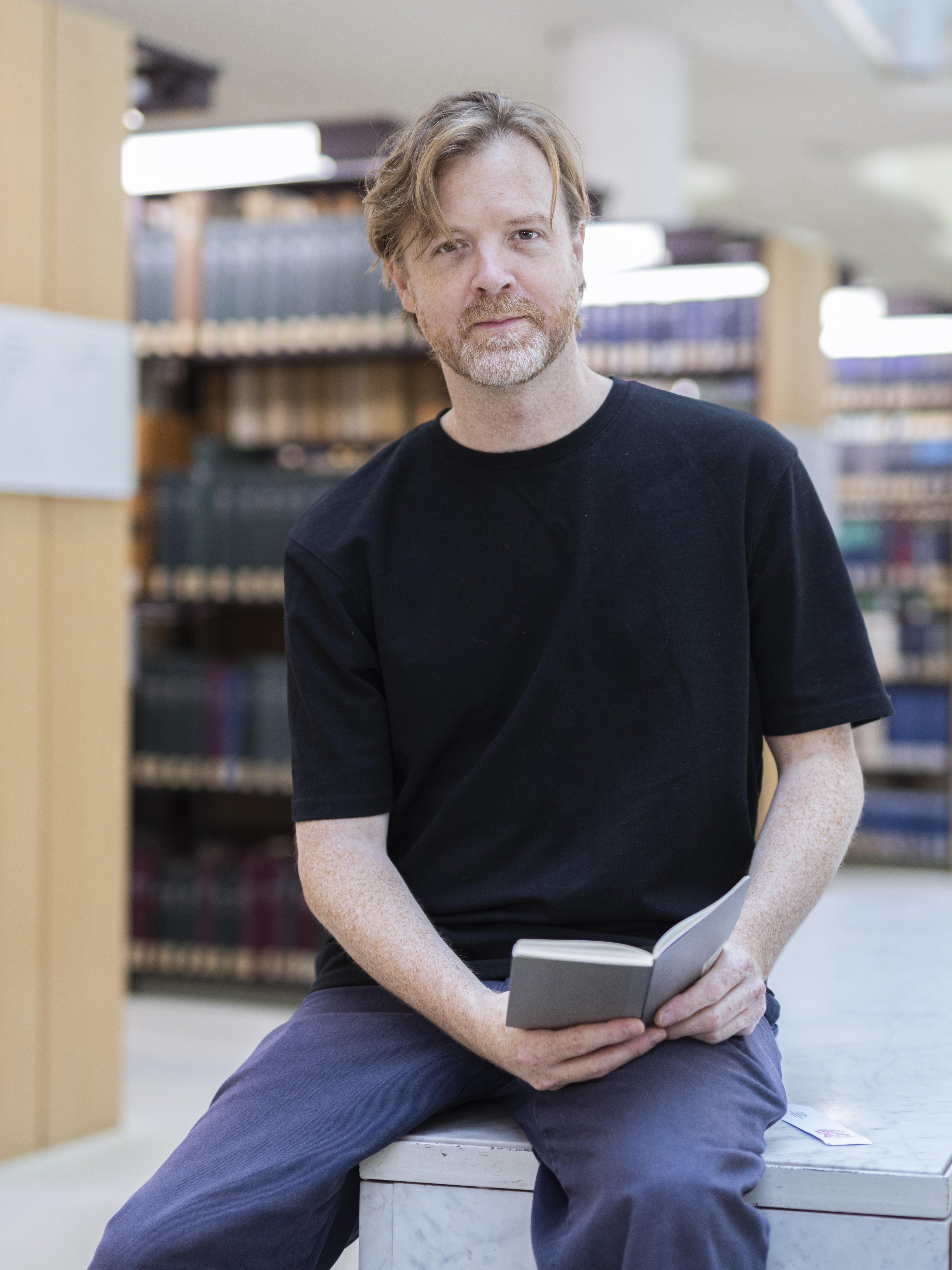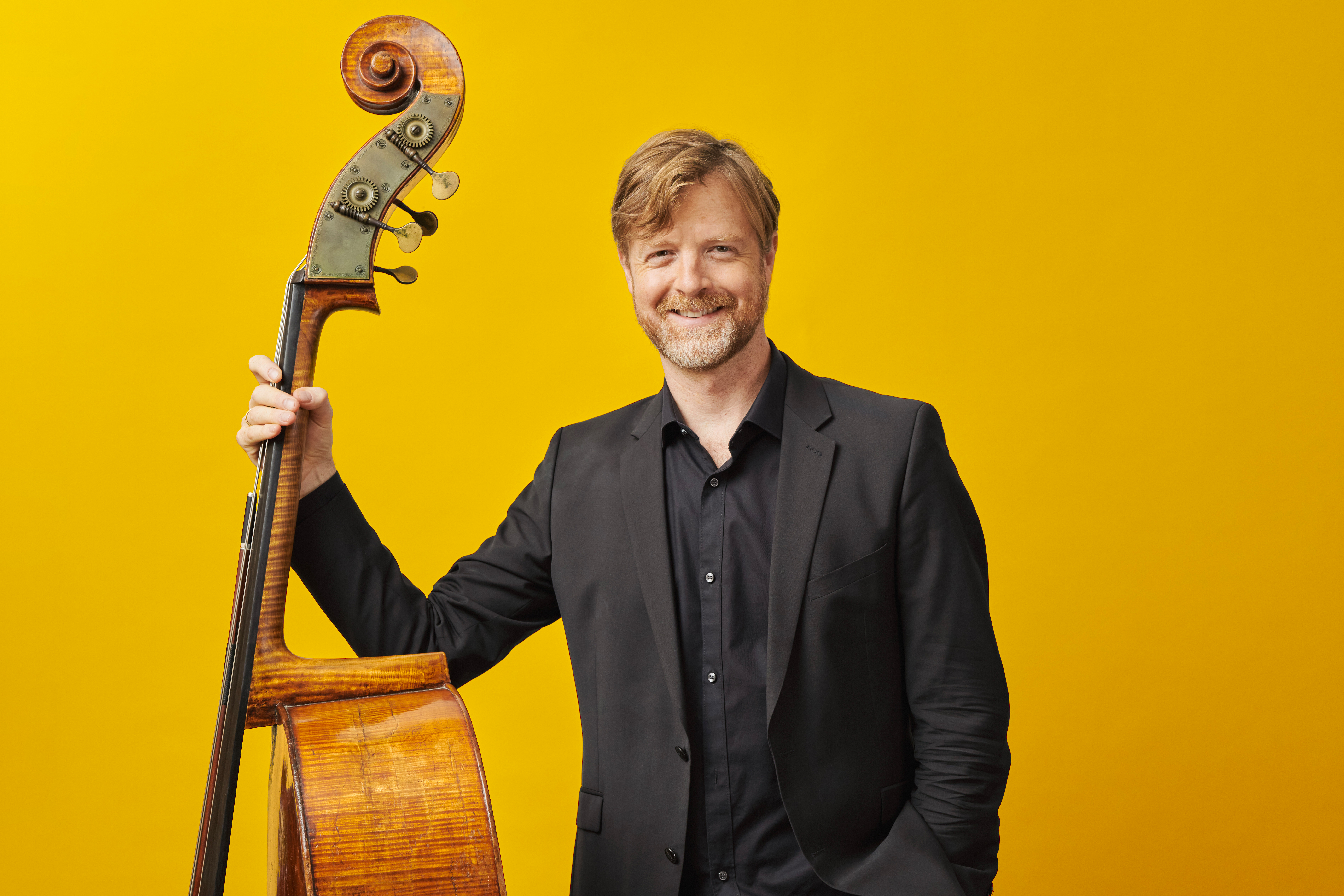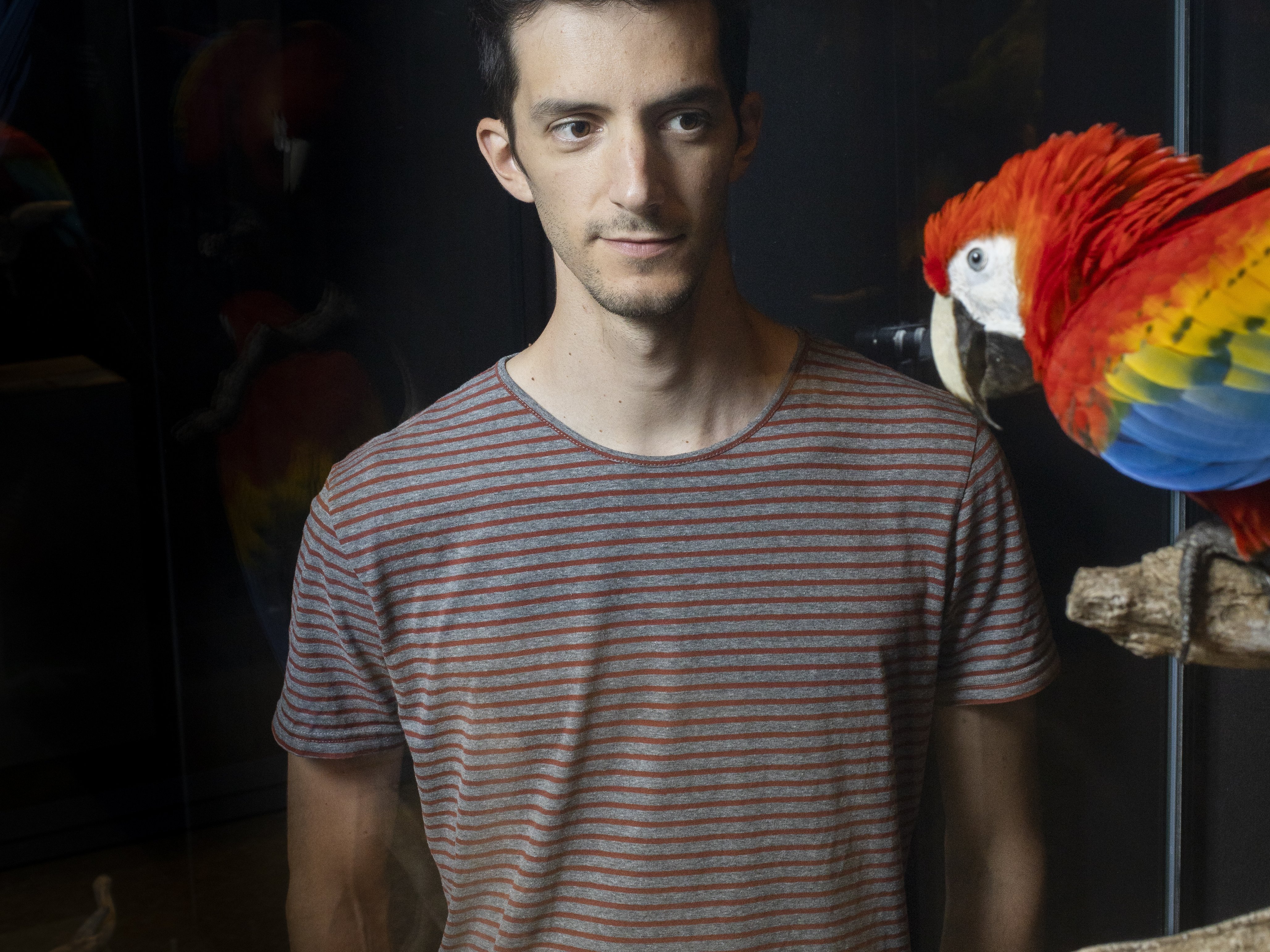- If I were not a musician ...

In this section, we present musicians of the Berliner Philharmoniker and their extra-musical pursuits. Today: double bass player Matthew McDonald, who loves poetry – and not only in music.
Wilhelm Busch can always be counted on for a witty remark: “How happy is he who can now and then // write something beautiful!” Busch implies that poets are both satisfied and fulfilled – something the subject of this portrait definitely confirms.
“Before I started playing the double bass, I wanted to be a poet or a writer,” begins Matthew McDonald. We are sitting in the double bass room of the Philharmonie Berlin; the Berliner Philharmoniker’s morning rehearsal ended just a few minutes ago. He has written poetry every day since he was a child, and initially toyed with the idea of studying literature. But then at some point, the double bass came into his life, and Matthew McDonald quickly fell in love with the soft, dark tone of this enormous instrument. In 1996, the native Australian began his studies at the Canberra School of Music, later continuing in Sydney and graduating there with a Bachelor of Music. From 2000 to 2001, he was a scholarship holder of the Berliner Philharmoniker’s Karajan Academy. Following initial engagements, he joined the Berliner Philharmoniker as principal double bass in 2009. But he never lost his love of poetry.
I ask Matthew McDonald what he finds so fascinating about poetry. He doesn’t have to think for long. “I’m fascinated by the fact that poems are always open to many different interpretations.” Unlike in a novel, for example, the narrative framework and the dramaturgical development of the characters are not really important in poetry. “It’s often more about the ʻsoundʼ and the ʻcolourʼ of the language,” he explains. “Sometimes a poem seems incomprehensible – and yet it is still able to have enormous power.”
Are there parallels between music and poetry? Matthew McDonald nods. “The practice of organising words according to their sound and rhythm always helps me a lot to understand tonality, articulation, harmony and so on. For example, I often think of the abrupt changes in Sibelius’ 4th Symphony, which are similar to the fragmentation in 20th and 21st century poetry.” He even advises his students to imagine a text while playing the music. “This often gives a phrase a nuance and timing that makes everything sound more natural.”
Last year, Matthew McDonald fulfilled a dream and founded the online literary magazine “berlin lit”, a quarterly journal for contemporary poetry (berlinlit.com). He now receives 700 to 800 submissions for each issue, from which he selects around 20 poems for publication. With so many activities, does he still get round to writing himself? Of course! He even completed a master’s degree in creative writing at the British Open University “with honours”, which gives you an idea of his passion for literature.
Last but not least, I want to know whether he would be tempted to write a novel. “My novel was at an advanced stage,” Matthew McDonald smiles. “But then, many years ago, I accidentally left the handwritten manuscript of around 200 pages on a bus. Perhaps it was fate telling me that poetry was more my thing.”

Matthew McDonald
Profile of the 1st principal double bassist of the Berliner Philharmoniker

Anna Mehlin: If I were not a musician ...
In this section, we present Berliner Philharmoniker musicians and their extra-musical passions. Today: violinist Anna Mehlin, for whom perfection and dedication are important not only in music.

Alle
Cellist Bruno Delepelaire could have imagined a professional life among swifts and cranes as an alternative to his musical career.